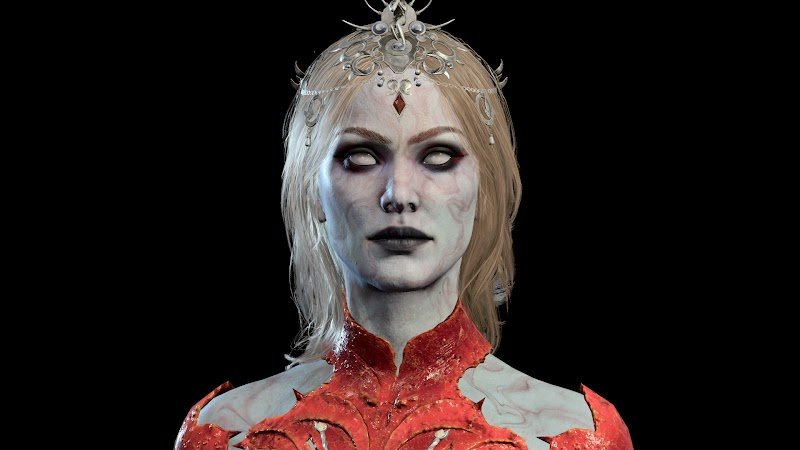Baldur’s Gate 3 (BG3) has captured gamers’ hearts with its rich storytelling and complex characters. Among these captivating personalities is Orin, a figure shrouded in mystery and intrigue. This article delves deep into Orin’s character, role in the game, and what makes him a compelling part of the BG3 narrative.
Who is Orin?
Orin, often called the “Shadow Thief,” is crucial in Baldur’s Gate 3. He is a Cult of the Absolute member, a shadowy organization that aims to gain power through manipulation and deceit. Orin’s character embodies the themes of betrayal and ambition, making him a central figure in the game’s narrative.
The Origins of Orin
Orin’s origins are steeped in mystery. Players discover bits and pieces of his backstory as they progress through the game. Here are some key points:
- Connection to the Cult: Orin is deeply intertwined with the Cult of the Absolute, suggesting a complex relationship with its leaders and their sinister plans.
- Mysterious Upbringing: Much about Orin’s early life remains unknown, adding an air of enigma to his character.
- Master of Deception: Orin is skilled in manipulation, often using cunning tactics to achieve his goals.
The Role of Orin in Baldur’s Gate 3
In BG3, Orin serves several vital functions:
Antagonist and Catalyst for Conflict
Orin is one of the primary antagonists players face throughout their journey. His actions drive the narrative forward, creating conflict that players must navigate. Here are some ways Orin acts as a catalyst for conflict:
- Strategic Manipulations: Orin orchestrates events from the shadows, leading to unexpected twists and challenges.
- Allies and Enemies: He creates alliances that can shift dramatically, influencing who players can trust.
Character Development
Orin’s character evolves as the story progresses. Players witness his motivations unfold, revealing a complex persona that challenges their perceptions. His development can be analyzed through several lenses:
- Ambition vs. Morality: Orin’s drive for power often conflicts with his moral compass, leading to internal struggles that players may relate to.
- Impact of Player Choices: Players’ decisions can affect Orin’s fate, making him a dynamic character whose story can change based on interactions.
Thematic Elements Surrounding Orin
The character of Orin introduces several thematic elements that enrich the game’s narrative:
Betrayal
Betrayal is a recurring theme associated with Orin. His actions often lead to feelings of mistrust among characters, emphasizing the dangers of deception in pursuit of power.
Power and Ambition
Orin embodies the concept of ambition, showcasing how the desire for power can lead to moral corruption. His story serves as a cautionary tale about the costs of unchecked ambition.
Identity and Self-Discovery
Throughout the game, players witness Orin grappling with his identity. His journey raises questions about who we are versus who we pretend to be, highlighting the importance of self-discovery.
Orin’s Abilities and Skills
As a character within BG3, Orin possesses unique abilities that reflect his role as a master manipulator. Here’s a closer look at his skills:
AbilityDescription
Deception Orin can easily deceive others, making him a formidable opponent.
Stealth His stealth skills allow him to move unnoticed, aiding in his manipulative tactics.
Persuasion Orin can influence others’ actions and decisions through persuasive speech.
Combat Proficiency: He is skilled in combat and is able to hold his own against various threats.
Player Interactions with Orin
Players’ interactions with Orin are crucial to the narrative experience in BG3. These interactions can take various forms:
Dialogue Choices
Dialogue choices significantly affect how players engage with Orin. Here are some common scenarios:
- Confrontation: Players can confront Orin directly, leading to intense exchanges that reveal his motivations.
- Manipulation: Players might attempt to manipulate Orin, showcasing their cunning and strategic thinking.
Combat Encounters
Orin is not just a talker; he can engage in combat, presenting challenges that test players’ skills. Here’s what to expect:
- Challenging Fights: Encounters with Orin can be brutal, requiring players to strategize effectively.
- Tactical Moves: Orin’s abilities in combat mean that players must think critically to defeat him.
The Impact of Orin’s Character on the Game
Orin’s presence significantly impacts the gameplay experience in BG3. Here are some reasons why:
Narrative Depth
Orin adds layers of complexity to the game’s storyline. His character encourages players to consider the broader implications of their actions and decisions.
Moral Dilemmas
Interacting with Orin forces players to confront moral dilemmas. Do they side with a manipulative figure for personal gain or stand against him for the greater good?
Emotional Engagement
Orin’s complex personality evokes a range of emotions in players. His ability to switch between ally and enemy keeps players engaged and invested in the narrative.
Conclusion: Embracing the Intrigue of Orin in Baldur’s Gate 3
In summary, Orin is a captivating character in Baldur’s Gate 3. His role as a master manipulator and ambitious antagonist adds depth to the game’s narrative. Players’ interactions with him provide opportunities for strategic decision-making and moral reflection, making the gaming experience all the more engaging.
As players journey through the world of BG3, they must grapple with the questions Orin raises about trust, ambition, and the nature of power. Ultimately, Orin reminds us that in Baldur’s Gate, nothing is as it seems, and every choice carries weight. Embracing Orin’s intrigue will undoubtedly lead to unforgettable adventures and experiences in the richly woven tapestry of Baldur’s Gate 3.
By understanding Orin in BG3, players enhance their gameplay experience and engage with the themes that make this game stand out in the RPG genre. Whether as an ally, enemy, or something in between, Orin’s story is one of cunning, ambition, and the quest for power—a tale that resonates with many aspects of human nature.

